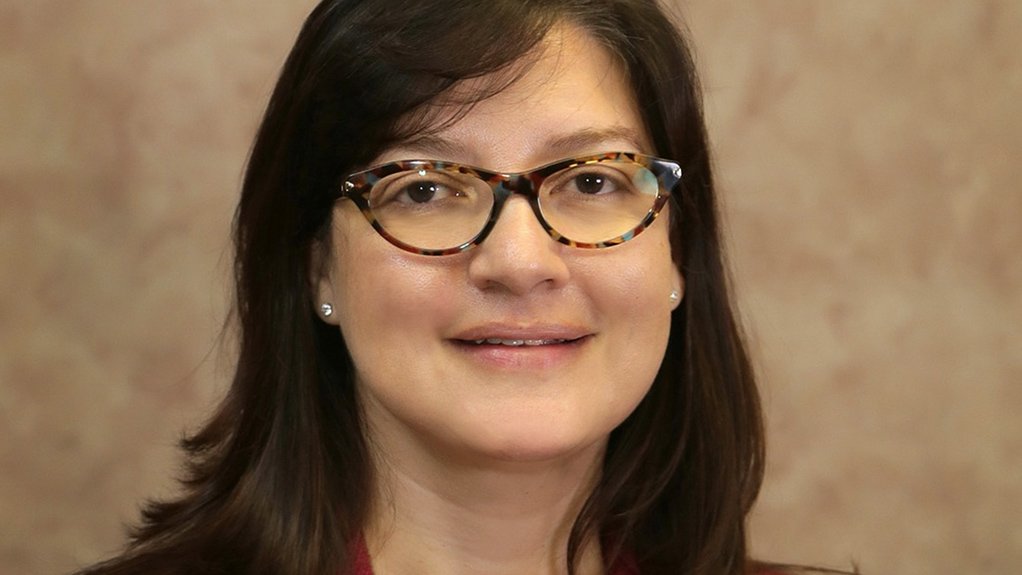Rail development must encompass entire continent – JCCI
If South Africa enhances its railway capacity and is the only country to do so in the Southern Africa region, without attending to north–south, inter-State rail corridors, the benefits of the country’s planned rail upgrades will be a lot less significant, says Johannesburg Chamber of Commerce and Industry (JCCI) president Advocate Fay Mukaddam.
She believes that Africa’s prospects of being a hub of global economic growth are hindered by the rail corridors, especially the north-to-south corridors, not being clearly defined, and points out that the region’s rail corridors are not seamless.
Mukaddam says modern and reliable transport needs to be established to ensure that the continent’s corridors are fully – and sustainably – operational, which requires an integrated long-term rail strategy.
“Railroad still occupies a critical role in South Africa’s transport system – from not only a commuter transportation perspective but also an export and import perspective.
“Further, Africa has a growing number of resources hot spots, where rail becomes key. Essentially, these hot spots are what the world wants, so maximising on these areas presents significant opportunities for transport infrastructure.”
She highlights that JCCI fully supports State-owned rail utility the Passenger Rail Agency of South Africa’s (PRASA’s) and cargo rail organisation Transnet’s additional investments in the rail industry. These projects have largely been geared towards replacing the country’s aged rail infrastructure and equipment.
Mukaddam says new rolling stock is a priority when upgrading rail facilities. She adds that Africa – particularly South Africa – is and will continue to be one of the biggest spenders on rolling stock, which comprises locomotives, carriages and wagons, besides others.
She enthuses that a particularly exciting aspect of South Africa’s rail procurement is the planned local training and manufacturing initiatives, which are bound to create jobs and skills transfer.
She also emphasises the urgency for government to ensure that the transportation of people and cargo is moved from the roads onto rail. Mukaddam highlights the need for business to shift from road freight and for rail in South Africa to take back business from the roads. She concedes that rail has its limitations in that it is unable to reach destinations that are located off of the main freight corridors, but emphasises that the opportunities for shifting freight from road to rail along these corridors are substantial and a work in progress.
She also points out that mines, particularly those associated with coal and iron-ore north of Gauteng, rely heavily on rail.
In terms of the general freight sector, Mukaddam predicts that once rail upgrades have been made, rail will play a greater role in transporting automotive cargo, petroleum products, chemicals and containers, while road freight will remain prominent in areas such as construction, agriculture, daily commodities, consumer goods, parcels and postmail.
However, she notes that these State-led developments and investments could be wasted if there are no downstream opportunities and demand does not match supply.
“The discussion cannot be had in a vacuum,” she adds, reiterating that rail-related topics, such as regions, rolling stock or passenger rail, cannot be discussed in isolation.
In addition to its focus on a holistic African rail plan, the JCCI emphasises the importance of sustainability and electricity supply to ensure that rail projects move forward optimally, says Mukaddam.
Off the Rails
Almost all business sectors in South Africa have been adversely affected by a rail network that is not fully functional; subsequently, transport of railed goods has been diverted onto road, incurring unnecessary costs for businesses and leading to a state of disrepair on South Africa’s roads network, says Mukaddam.
She adds that, owing to government’s neglect of the rail sector over the years, the skills pool for the sector has slowly dwindled and is significantly weaker than it was 15 years ago.
Mukaddam bemoans the monopolistic nature of the rail industry, which she says is enforced by the State, adding that the rail industry must diversify if it is to thrive. She argues that freedom of enterprise stimulates economic growth and opportunity and she believes that the rail market in South Africa is big and demand-elastic enough to facilitate other players in the industry.
Although there are currently no discussions under way in terms of establishing another rail company in South Africa, Mukaddam thinks the most likely progress from monopolistic State ownership would be a public–private partnership model. She suggests that moving away from a State monopoly would probably entail the privatisation of depots and stations, with the actual rail lines remaining under State control.
Mukaddam states that the significance of South African rail and its rich history cannot be underestimated, and that it is a crucial catalyst of African economic growth prospects.
“Its heritage is unquestionably woven into the very fabric of our society, but it is a quality- driven, challenging industry that can succeed only if key partners come together – including private companies, government and railroad operators – to create a value-driven relationship.”
She adds that the JCCI looks forward to the ongoing developments in the rail industry, where it has played an integral part over the past 125 years, contributing to discussions on development and to facilitating change.
Comments
Press Office
Announcements
What's On
Subscribe to improve your user experience...
Option 1 (equivalent of R125 a month):
Receive a weekly copy of Creamer Media's Engineering News & Mining Weekly magazine
(print copy for those in South Africa and e-magazine for those outside of South Africa)
Receive daily email newsletters
Access to full search results
Access archive of magazine back copies
Access to Projects in Progress
Access to ONE Research Report of your choice in PDF format
Option 2 (equivalent of R375 a month):
All benefits from Option 1
PLUS
Access to Creamer Media's Research Channel Africa for ALL Research Reports, in PDF format, on various industrial and mining sectors
including Electricity; Water; Energy Transition; Hydrogen; Roads, Rail and Ports; Coal; Gold; Platinum; Battery Metals; etc.
Already a subscriber?
Forgotten your password?
Receive weekly copy of Creamer Media's Engineering News & Mining Weekly magazine (print copy for those in South Africa and e-magazine for those outside of South Africa)
➕
Recieve daily email newsletters
➕
Access to full search results
➕
Access archive of magazine back copies
➕
Access to Projects in Progress
➕
Access to ONE Research Report of your choice in PDF format
RESEARCH CHANNEL AFRICA
R4500 (equivalent of R375 a month)
SUBSCRIBEAll benefits from Option 1
➕
Access to Creamer Media's Research Channel Africa for ALL Research Reports on various industrial and mining sectors, in PDF format, including on:
Electricity
➕
Water
➕
Energy Transition
➕
Hydrogen
➕
Roads, Rail and Ports
➕
Coal
➕
Gold
➕
Platinum
➕
Battery Metals
➕
etc.
Receive all benefits from Option 1 or Option 2 delivered to numerous people at your company
➕
Multiple User names and Passwords for simultaneous log-ins
➕
Intranet integration access to all in your organisation





















